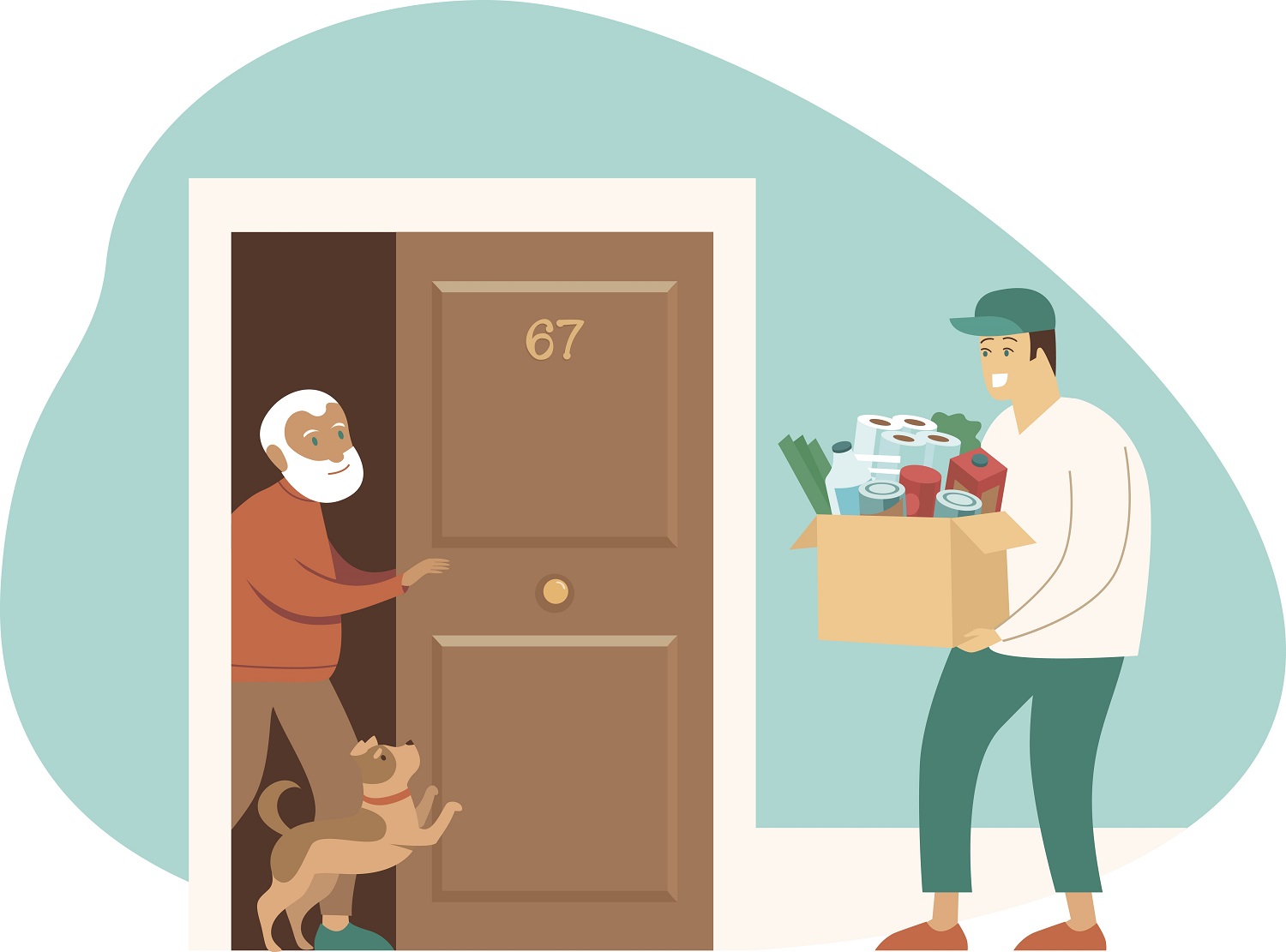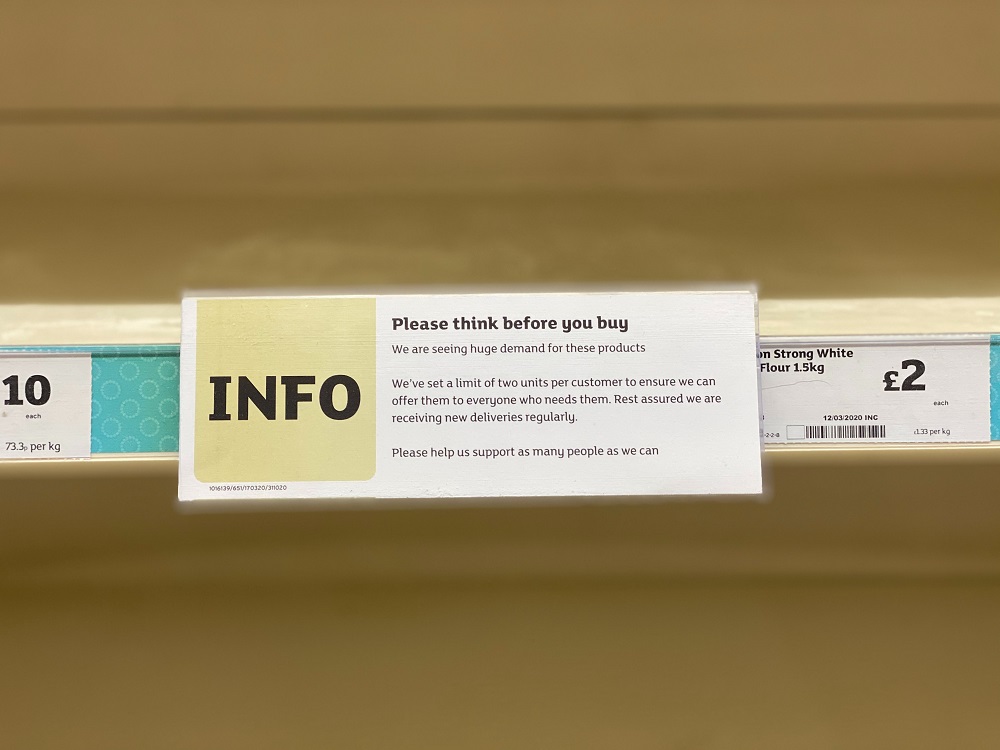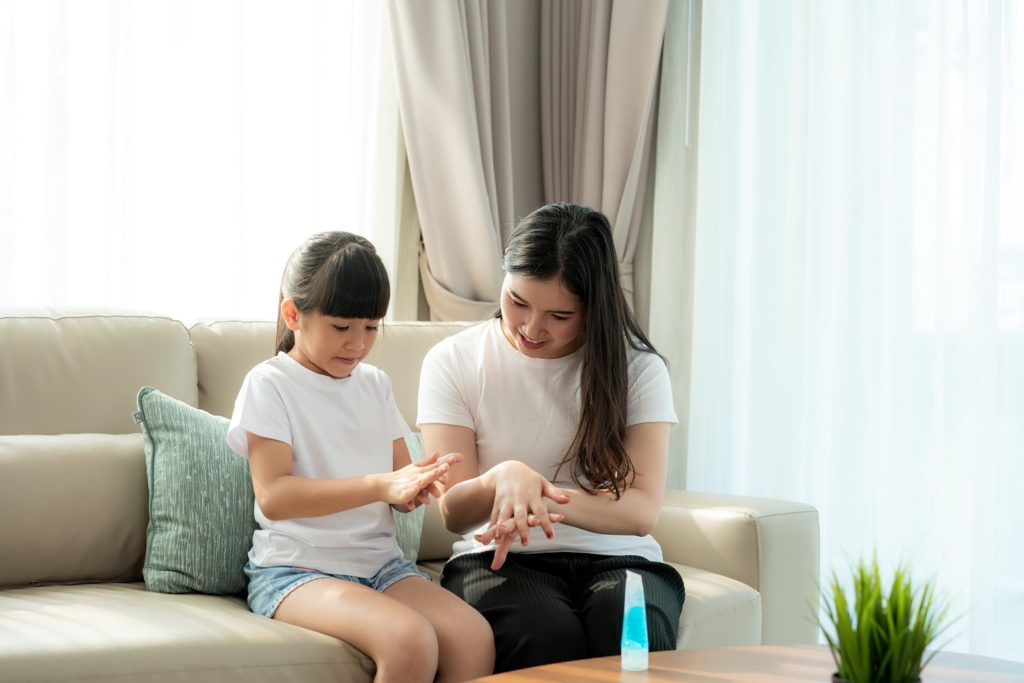
Faced with pictures of empty supermarket shelves and passengers on trains shouting at one another we might think that we are watching news from a war zone. The panic and fear that prompts such behaviour can be explained but it certainly is not what will get us through this time of crisis.
Our democratic societies have been built upon the values of individual self-reliance and freedom, autonomy and choice. However, what we really need now is to come together as a community and to focus on CARE. Care comes in many forms including self-care, caring for each other, and generating caring solutions that will refresh, reform and reinvigorate our societies and economies.
At the Flinders University Caring Futures Institute, we know the impact that concepts such as individuality, self-determination and personhood have on people’s actions. Sometimes caring is seen as a special gift like being compassionate, or kind. Instead, we think that rather than being an exceptional quality, caring is a bedrock concept that sustains life and keeps people healthy.
We know that people and communities are thinking about issues relating to care now more than ever. For example, the Twitter hashtag #CareRationing is being used to reflect fears about lack of resources. On a more positive note, the term #CareMongering has emerged as individuals and communities seek to assist each other.
The problem is that there is a long history of our societies dismissing the fundamental importance of self-care and caring for others. It’s only when we are faced with global pandemics of the scale of COVID-19 that we have to confront some fundamental propositions or truths.

Our proposition
Every human being needs care – from birth to death, regardless of social status, wealth, gender, race or ability. Needing care, being cared for, and providing care are universal skills that keep individuals, families and communities and whole social systems healthy and productive. Care does not compromise an individual’s autonomy or right to make independent choices. When care is not delivered or received in a respectful, ethical way human agency is compromised.
Caring is profoundly undervalued, under acknowledged, underpaid and under resourced in many societies. This is because caring is perceived as unsophisticated, ‘common sense’, carried out by (mostly) women. Many of our care industries are beset by resource challenges and problems with attracting, maintaining, and training staff appropriately. Now, in a time of crisis, these same people have answered the call to action and are working tirelessly, putting themselves and their families at increased risk, to support the community in this time of need.
Caring isn’t just about doing the physical things. It’s also about understanding a person’s need for contact and connectedness; for warmth and meaning in their relationships and interactions; and building mutuality in relationships of care. At times of isolation and disruption many of these essential interactions are limited and people have to rely on relative strangers to meet these fundamental needs.

Call to action
COVID-19 will focus our attention on strengthening the caring infrastructure that leads to healing and regeneration of individuals, communities and the economy. At the same time as searching for and investing in cures, we need to improve our self-care literacy and our capability to care for others. Otherwise we will not be able to address COVID-19 and prevent other pandemics. Our care strategies should ensure that every member of the community has equal opportunity to understand the why, what and how of infection control and containment practices. For example, information on hand washing and social distancing means needs to be provided in a culturally, linguistically, and educationally appropriate way.
At the same time as we invest in a vaccine we should also be exploring what we’ve learned about optimal self-care and infection control practices; how we can promote more generosity and responsible caring actions; how we can take action to improve the social determinants of health; and build and sustain the more vulnerable in our societies. We are encouraged by the many acts of generosity and kindness that are starting to emerge. People responding to another person’s plight in a way that edifies and confirms their worth and personhood, whether these actions have been from a nurse or a doctor on the frontline or a passerby responding on the street. These should be the images that remain with us as we move through the impact of the pandemic and they should remind us of the centrality of caring in our societies.
The Flinders University Caring Futures Institute will be using this COVID-19 experience to better understand how we prepare for such events, not just around the physical, practical things but also exploring the fabric of care and caring relations that both protect and nurture individuals, families and whole communities.
Authors: Professor Alison Kitson, Flinders University Caring Futures Institute Foundational Director and Knowledge Translation Lead, Professor Joanne Arciuli, Methodological Innovations Lead, Professor Robyn Clark, Better Care Lead, Professor Rebecca Golley, Better Lives Lead, Belinda Lange, Technology Lead, Professor Julie Ratcliffe, Better Systems (Interim) and Health and Social Care Lead, and Professor Sally Robinson, Better Communities Lead.
Join the conversation on Twitter by following us at @FlindersCFI or using the #CaringFutures hashtag

